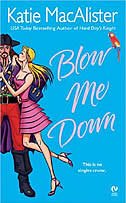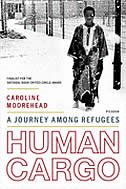Blow Me Down

Blow Me Down
By Katie MacAlister
First off, this book requires some SERIOUS suspension of disbelief. The story is as follows: Kate gets “trapped” inside a virtual reality computer game about pirates by a jilted computer programmer. She experiences this alternate game world exactly like reality. Now, we’ve come a long way from the days of ATARI, but if you’ve ever played a MMPORPG you know it’s not like reality. (I know I’ve just revealed my true level of geekiness by using that acronym…)
Back to the book – aside from being totally ridiculous, I kind of enjoyed this book. It’s basically a period romance set in “pirate times” (I made that up because I have no idea when it was actually supposed to take place), except it’s actually set in the present but the main character gets trapped in an alternate reality based in the past. The book was fresh and funny, and at its heart is a twist on the classic boy-meets-girl story. Well, girl gets trapped inside pirate video game and meets boy pirate only to discover that he’s really the creator of the pirate video game and is also trapped and they band together to fight evil pirate who’s actually a computer programmer in real life and they fall in love… It's a fun, light read - and the cover is very bright and summery if you care about that sort of stuff.




















